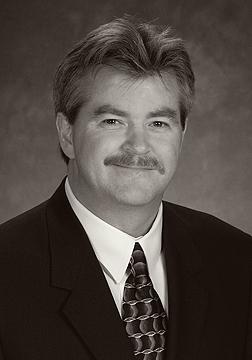So Much To Learn With So Little Time
It is not just the amount of information in medicine that is expanding but also the usefulness of that information. In healthcare there is an exponential growth of information which is being used to create new treatments and operations all the time. It is one thing to keep pace with and manage the available information, but it is another thing to maintain and learn the skills required to perform the ever expanding array of new and innovative operative techniques. One way to do this is through the use of simulators. In a previous post I discussed the rational for using simulators to enhance training and reduce the potential for error. This last week I attended the SAGES (Society of American Gastrointestinal and Endoscopic Surgeons) meeting in Dallas, Texas. While there I was reminded of the importance of simulators for the continuing education, training and development of operative skills throughout a surgeons career.
The Surgical Culture
There are barriers to the use of surgical simulators and the biggest one will arise directly from the current culture within surgery. Surgeons are very independent individuals. We don't like being told what to do and prefer giving orders as opposed to taking them. It's an extremely useful trait in the operating room and trauma room. These are environments that have little tolerance for indecision or time for debate. It often comes down to one vote and the one that counts is the surgeon in charge. Such skillful and autonomous individuals are more than likely going to provide some push-back when it comes to taking time off of their busy schedules to train on the simulator, but that is where the future of surgery is headed. Simulators will be used for basic training, research, maintenance of operative skills, acquisition of new skills and operative techniques, maintenance of board certification and hospital credentialing. Whether we like it or not surgeons are going to have to get on board with simulators. In time our culture will demand it and that will count as the one and only vote on whether we will do it or not.
Teaching Old Dogs New Tricks
When we complete our surgical residency it is assumed that we are proficient in all the skills that will be required of a surgeon throughout their career. In the early 1990's this paradigm was shattered by the introduction of an operation call laparoscopic cholecystectomy or the removal of a gallbladder using the assistance of a small operating scope and minimally invasive surgical techniques. What made this operation so radically different was the novel use of techniques not previously taught to most surgeons already in practice. Initially surgeons rejected the idea of using a laparoscope to remove a gallbladder, but in time the operation gained widespread acceptance. During this transitional period I was a surgical resident and witnessed first-hand the oftentimes awkward transformation of a surgeon use to open techniques learning the newer minimally invasive laparoscopic techniques. On many an occasion the surgical resident in training was more familiar with the laparoscopic techniques than the board certified surgeon who was supposed to be teaching them. Like I said it could be awkward. With the introduction of simulators we don't have to go through that experience ever again.
Pumping Up At The Simulator Lab
Simulators will allow us to not only develop new skills, but bring us up to date on skills we once acquired, but have allowed to atrophy from lack of use. Over time a surgeon tends to focus their career in a particular area of specialty. Some skills crossover from specialty to specialty, but some do not. Some skills never seem to be forgotten (like riding a bike) but other skills, usually more technical ones, degrade very quickly. When an old skill, which deteriorated due to lack of use, becomes uselful again, simulators will bring that skill up to an acceptable level of proficiency. Identifying the metrics needed to guarantee proficiency will take more work, but we are approximating that point. Many of the newer models of simulators (Simbionix, ProMis) have these types of metrics built into them. SAGES has also taken the lead in this endeavor with its Fundamentals of Laparoscopic Surgery educational module. The most encouraging thing I heard at the recent SAGES meeting was that everyone who is able and motivated can not only develop new skills and techniques, but can also improve an old skill that needs some tuning up. In time, simulators will become an enduring part of our surgical culture. It's time has come.
Subscribe to:
Post Comments (Atom)

No comments:
Post a Comment